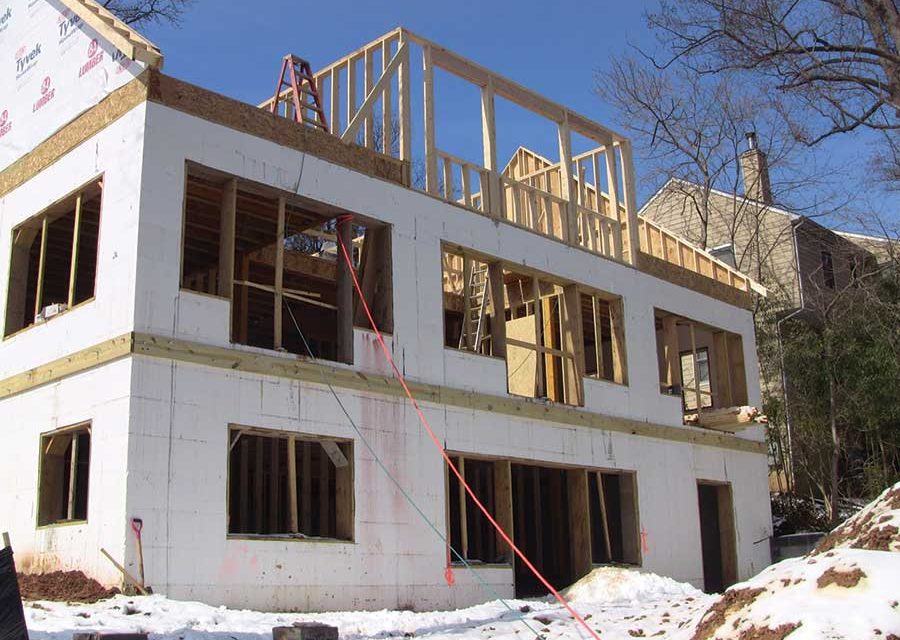Regardless of which brand of ICF block you use, it’s absolutely essential that the job be done right, because observers don’t differentiate between contractor errors and the technology itself.
“People still look at this as an alternative building technique, and they are very critical of it because they’re trying to see if it actually works,” says Rich Barker, a distributor for American PolySteel. “If you have a job that’s done poorly—with walls that aren’t straight, or true, for instance—instead of saying ‘well, it was an improper installation job,’ observers will usually generalize and think, ‘those foam forms don’t work.’ One improperly done job affects the entire industry”
Alan Johnson, an experienced ICF installer and president of IMS Masonry, has dealt with the aftermath of a poor job. “The general contractor had used an installer who was inadequately trained. The walls were improperly braced, leading to a wavy wall. I was consulted by a representative of the General Contractor towards the end of the project to assist with solutions for getting the project finished. Consequently, due to a bad experience, the city was dead set against building ICF projects in the future, and the GC said he’d never build an ICF project again.”
A year later, when Johnson bid an ICF job in the neighboring county, officials there balked as well. He eventually did win over the officials, by providing a history, resume, and references to prove his company was competent. “It’s pretty sad, but that’s how it was,” he says. “They were just trying to avoid the big problems they’d heard about.”
Barker has dealt with a similar situation. “County building officials were very reserved about using us, even though we had code approvals and there wasn’t a reason that they could deny us,” he says. “They were very concerned about how the product was going to be installed, who was going to be installing it, and they were on the jobsite extremely often—three or four times a week—during the installation portion.”
Johnson doesn’t fault the officials. “They’re so caught up in the frustration that they can’t see past the fact that the technology actually works very well when used properly.”
Needless to say, this industry doesn’t need bad publicity.
In truth, ICFs work extremely well, even under adverse conditions and less-than-optimal installation. The problem lies with the training and certification of contractors. “In the past, I’ve seen manufacturers shipping to people who think they’re Lego blocks that don’t require a lot of skill to install,” says Johnson. “But the fact is, during the pour, the wall does move around, and may bulge in places if it’s not braced right. The bigger the project, the more complicated it gets. Unskilled, untrained people don’t understand that,”
If you want to ensure the job goes right, says Barker, work with a company that provides outstanding customer support. “Number one is a company that will work with the contractor, train them, and actually goes to the jobsite to ensure every job goes well. If the contractor has a good experience with the product, he is going to come back and the investment will pay for itself.”
Johnson adds, “Everyone says they give support, but there’s a big difference between what the different companies offer. It would be wise for all the manufacturers to be willing to be at the jobsite when a new contractor does his first job.”
Johnson also recommends that general contractors pre-qualify those that can bid on ICF installation work, especially on bigger jobs. He notes that pre-qualification is a fairly standard practice in masonry and other trades.
“To say qualified, experienced contractors will never have problems isn’t true,” says Johnson. “But those occurrences will be rare. Contractors who educate their employees on proper installation procedures can produce a great finished product. An educated contractor will find products and equipment designed to assist with installing ICF. With qualified professional installers, anyone can have a successful project.”













